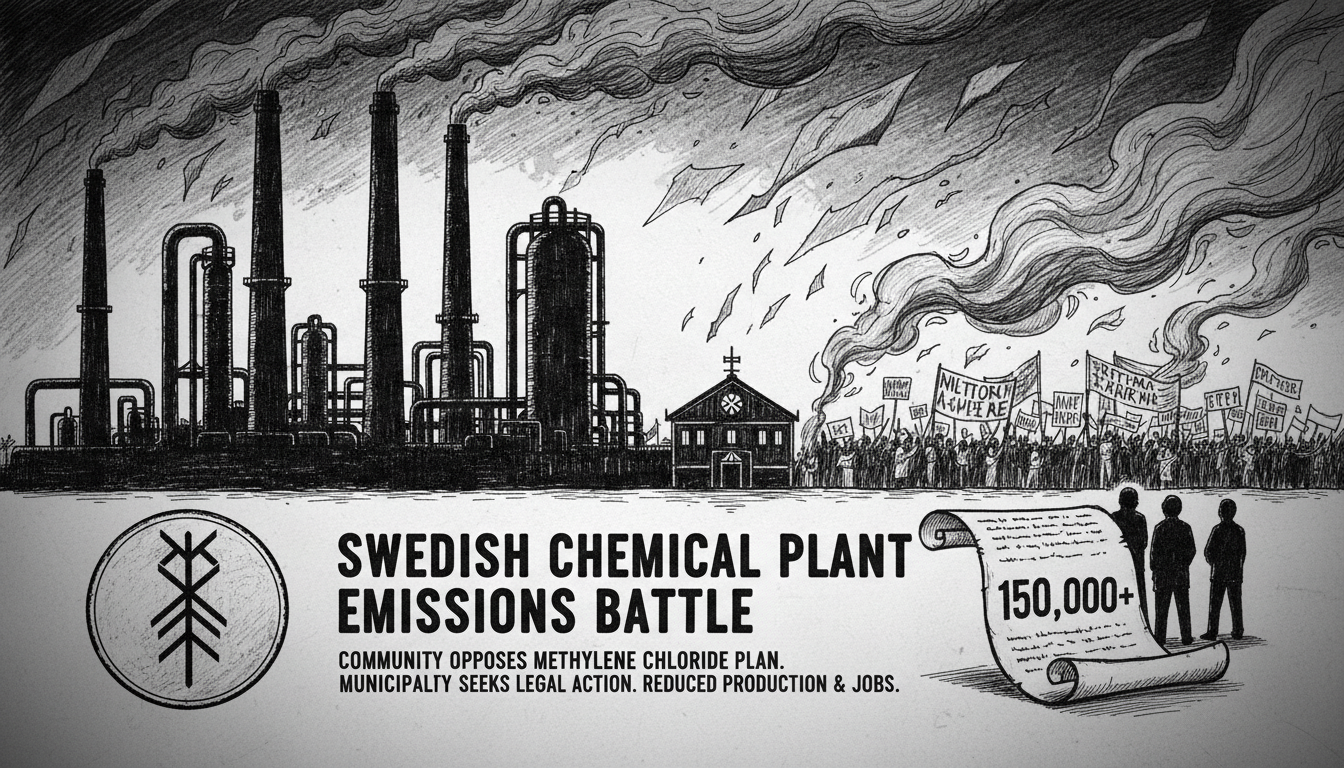A Swedish chemical company faces growing public opposition over its planned emissions. Residents in Eskilstuna protest the factory's upcoming release of methylene chloride. Over 150,000 people signed petitions demanding the emissions stop.
Multiple demonstrations occurred near the factory and in central Eskilstuna. Social media campaigns amplified the protest movement. The issue gained significant traction across digital platforms.
Local authorities initially welcomed the company's establishment in 2021. The municipality has since changed its position. Officials now pursue multiple measures to stop the emissions.
The municipal board appealed the Chemical Inspectorate's decision granting emission rights. They also approached the Environmental Assessment Delegation in Uppsala. The municipality requested a reassessment of the environmental permit.
Recently, local government asked national authorities for intervention. They seek government assistance in stopping the planned emissions.
Company representative Cecilia Vallin addressed the concerns directly. She stated they take public worries very seriously. The company claims thirty years of experience handling methylene chloride.
Vallin described the chemical as common within industrial applications. She emphasized their capability to manage it safely.
Production will begin next year at reduced capacity. Original plans promised six hundred new jobs for the community. Current estimates suggest only two to three hundred positions will materialize.
The scaled-back operation reflects the strained relationship with local government. Vallin acknowledged tensions exist between the company and municipality.
This situation highlights Sweden's evolving environmental regulations. Municipalities increasingly face pressure from environmentally conscious citizens. The case demonstrates how local opposition can influence industrial projects.
International readers should understand Sweden's decentralized environmental governance. Municipalities hold substantial power over local industrial activities. National agencies provide oversight but local approval remains crucial.
The conflict represents broader European trends in environmental activism. Communities increasingly challenge industrial projects over health concerns. Chemical emissions particularly trigger strong public reactions.
What does this mean for foreign companies considering Nordic expansion? Environmental compliance requires more than meeting legal standards. Community acceptance has become equally important for project success.
The company's experience shows even legally permitted operations face obstacles. Public perception can override regulatory approvals in modern Sweden.
Future operations will likely proceed under intense public scrutiny. Both company and municipality must rebuild community trust. The outcome could influence similar industrial projects across Scandinavia.
